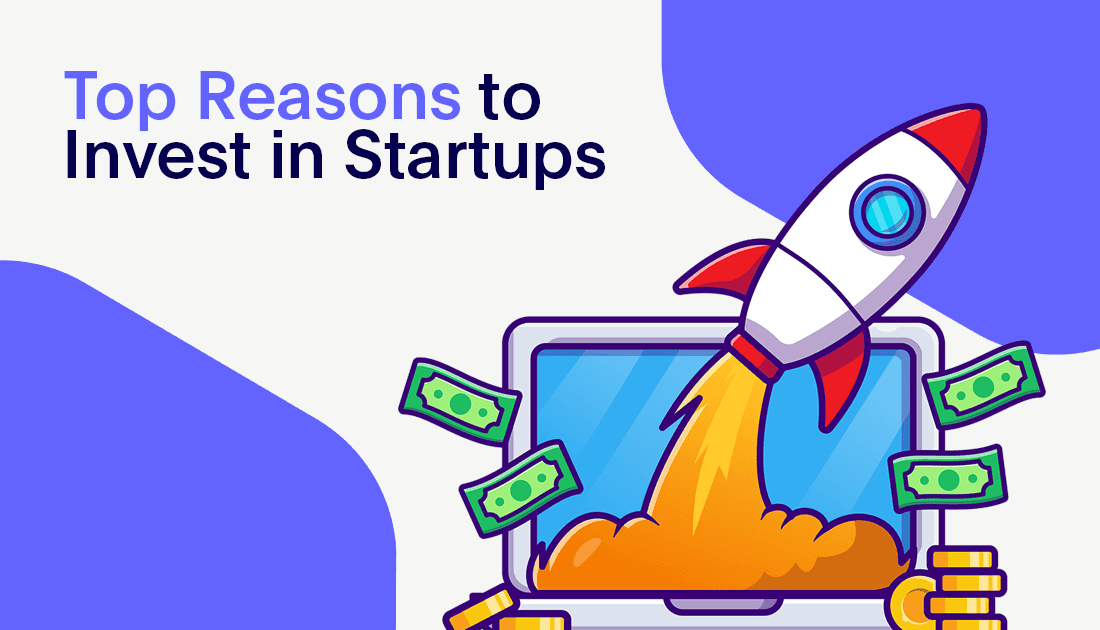Why Invest in Startups?
We’ve all heard the statistic that 90% of startups fail with only 50% of businesses making it past their 5th year. So why invest in startups?
In reality, despite carrying greater risk, startups have always presented an alluring investment opportunity for both new and seasoned investors alike. Similar to many financial instruments, in exchange for higher risk, they offer the potential of huge returns.
Most people are now familiar with crowd favourite TV shows Dragons Den (UK) and Shark Tank (USA and AUS) that has some of the biggest names in venture capital/angel investors circling to invest in the next biggest startup. But did you know that now, through equity crowdfunding, almost anyone can invest in their favourite startup with minimal investment amounts?
With over 162 successful offers and $93m+ raised, the Equitise team is making investing in startups more accessible than ever.
Sydney-based startup graduate, Canva, valued at billions. Cult favourite craft brewery Stone & Wood were acquired for $500m by international beverage giant, Lion, with the success of these homegrown brands inspiring a fresh wave of disruptors such as innovative privacy-tech platform, Openly, and viral recyclable toilet paper business Who Gives A Crap.
So, the verdict is in. There has never been a better time to invest in your favourite startups and these are our top reasons why you should invest too.
Top Reasons to Invest in Startups
Get in early high potential return/buyout
By joining in the early stages of the business, investors have the opportunity to achieve high returns on their investment above the market. Startups often have high growth rates, which cause the value of the company to increase rapidly when compared to existing companies in mature industries with slower growth. If you invest in a startup when it is young and still private, you'll likely receive shares at attractive valuations, which will allow you to achieve high returns when the company is eventually acquired or goes public
The Thomson Reuters Venture Capital Index which replicates the performance of the US venture capital industry returned an annualised average of 32.60% since first trading in 2012 compared to 20.75% for public equity (NASDAQ Composite TR). Return on investment can be realised through an IPO, share buybacks, mergers & acquisitions or via secondary market trading.
A key example of this can be seen in Camden Town Brewery which raised £2.8m from 2,172 investors in 2015. The same year, they were acquired by AB InBev giving investors an estimated return of 70%. Alternatively, Douugh (DOU), which performed an IPO through Equitise, rewarded early investors with a return of up to 1633% if they managed to sell at its high.
Chance to diversify portfolio
For any investor, investing in startups presents a great opportunity to spread portfolio risk. Having shares in an unlisted company means that the returns from startups are often less correlated with the movements of the market reducing the impact of negative shocks to the market (unsystematic risk). Furthermore, with minimal barriers to entry given low minimum investment, no hidden fees and a range of investment opportunities, equity crowdfunding offers an accessible way to diversify holdings across industries, business stages and risk.
Exciting opportunity
Most startups have already identified a gap in the market that they are trying to exploit. According to a global study by Equidam, updated in 2019, the average startup forecasts a revenue growth rate of 178% for their first year, 100% for the second and 71% for the third. For investors, businesses that are able to capitalise off of these gaps in the market and related attractive market trends and opportunities in a timely manner with a strong, scalable business model offer promising investment opportunities that can only be found in the startup space.
On top of this, one of the most compelling reasons to invest in startups is that it can be an opportunity for you to get involved with something new, exciting and innovative. While some investors are content to take a passive role, people who invest in a startup in its early stages often take a hands-on approach, offering advice and perspective.
Chance to diversify portfolio
For any investor, investing in startups presents a great opportunity to spread portfolio risk. Having shares in an unlisted company means that the returns from startups are often less correlated with the movements of the market reducing the impact of negative shocks to the market and thus a portfolio’s unsystematic risk. Furthermore, with minimal barriers to entry given low minimum investment, no hidden fees and a range of investment opportunities, equity crowdfunding offers an accessible way to diversify holdings across industries, business stages and risk.
Impact investing - socially conscious investors
Beyond financial motivation, another key reason for investing in startups is the potential intangible benefits for the more socially conscious investors. Now, more than ever, investors want to back local, innovative businesses that are filling a gap in the market and solving problems that have yet to be addressed by larger businesses. According to the Giant Leap Ventures’ Impact Startup Benchmark Report 2021, between 2015 and 2020, 20% of Australian startups were considered ‘impact’ businesses with almost half of these startups being focused on sustainability and the environment.
Investors are interested in purpose-led brands that are driven by their desire to champion a meaningful cause. Our alumni Spinifex is a key example of this. Driven by their passion for native ingredients and supporting the veteran community, Spinifex was able to nurture over 2000 expressions of interest from impact-driven investors utilising strong community ties and benefiting from both regional and national press. The results? A record-breaking raise for craft beer in Australia, raising over $2.0m within just 2 days of being public.
Unsure how to invest in startups?
Read our Complete Guide to Equity Crowdfunding and start investing!
